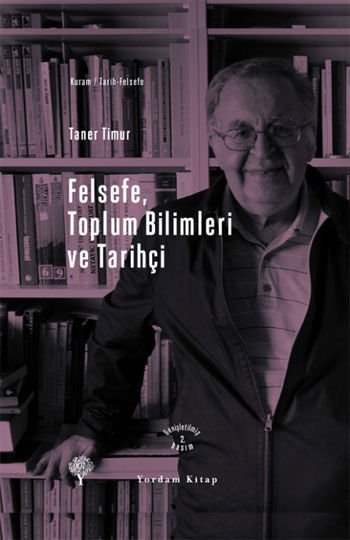
Felsefe, Toplum Bilimleri ve Tarihçi (Ciltli)
This book, which is based on decades of reading history and philosophy and is the product of three years of intensive work, constitutes a new pinnacle of Taner Timur's studies. The study tells the stories of historiography, philosophy and social sciences, which meet each other from time to time throughout history, but most of the time follow a development line that is disconnected from each other and independent from each other.
Ancient Greece, the cradle of philosophy and science, was also the cradle of historiography; But Aristotle did not consider historiography, which deals with the specific rather than the general, as science. This view remained valid throughout the Middle Ages, under the control of clergy and theologians.
The breaches opened by the Renaissance in the understanding of sacred history were widened by the coups of the 17th century rationalist philosophers, and the following century was marked by the "victory of reason", which Kant called "Enlightenment". Thus, modernism was born as a result of what Weber called "disenchantment."
The 19th century transformed the Enlightenment into a dialectical movement in Hegel's "method"; But again, in Hegel's "system", history ended in the form of "Absolute Wit". Marx and Engels adopted Hegel's dialectical method and explained the integrity provided by capitalism within the theoretical framework they called historical materialism, based on developments in social sciences. Thus, metaphysical synthesis was replaced by scientific criticism based on socioeconomic analysis, and the irreconcilable contradiction that capitalist globalization tried to hide was revealed.
The 19th century, which was filled with crises, revolutionary breakthroughs and counter-revolutions, was followed by the 20th century, which witnessed two bloody world wars. While capitalism integrated the world and turned it into a "global village" with inequalities, capitalist division of labor increased the division of labor in science and developed "specialization". Thus, increasingly "specialized" branches of science became unable to understand not only the "whole" but also each other. Micro-history, micro-economics, micro-sociology, etc., all sciences were compromising with established interests and competing to present global capitalism as a destiny under the guise of "scientific neutrality".
Today, science and historiography experience the contradictions and tensions between globalization and ghettoization. This book tells the story of this development, from Aristotle to Heidegger and contemporary historians.
Hardcover:
Number of Pages: 494
Year of Printing: 2014
eBook:
Number of Pages: 486
Year of Printing: 2011
Language: Turkish
Publisher: Yordam Kitap
First Print Year: 2011
Language Turkish
| Publisher | : | Procedure Book |
| Number of pages | : | 494 |
| Publication Year | : | 2014 |
| ISBN | : | 9786055541477 |
| The heart | : | Turkish |
Üye olmadan sipariş verebildim.
Ayrıca, kargo süreci hakkında da sistem üzerinden güncel olarak bilgilendirildim.
Memnuniyet duydum.


